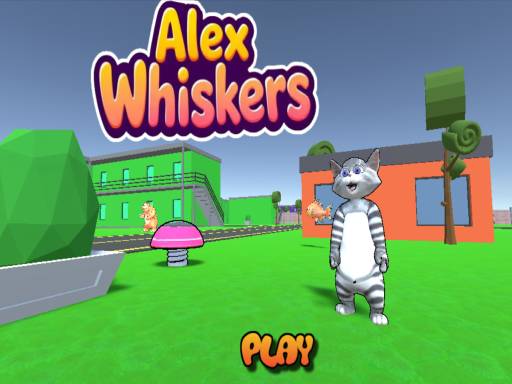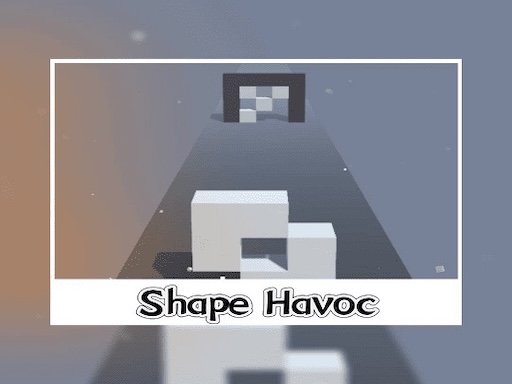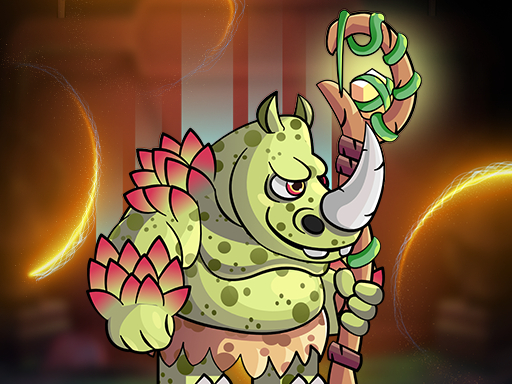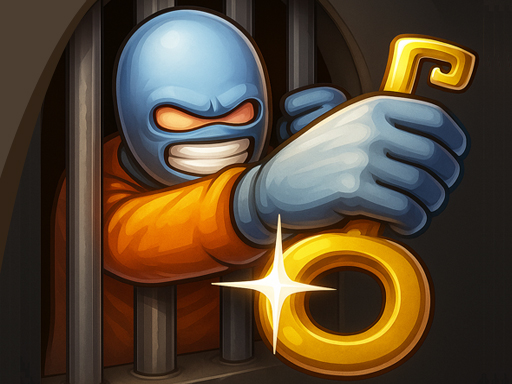Starfall: A Cosmic Odyssey
About Starfall: A Cosmic Odyssey
Dude, you are not going to *believe* the game I stumbled upon last week. Seriously, I’ve been completely swallowed whole by it, like I’ve lost entire evenings without even noticing the clock ticking. It’s called *Starfall: A Cosmic Odyssey*, and honestly, I don’t even know where to begin, because it’s just… it’s a *vibe*. It’s everything I love about games that manage to blend pure, unadulterated arcade action with this surprising depth that keeps pulling you back in.
You know how I’m always drawn to games that have that core, incredibly satisfying loop, where every single second feels impactful, where your reflexes are constantly being tested, but there’s also this underlying strategy that develops as you play? That’s *Starfall* in a nutshell, but cranked up to eleven. Imagine this: you’re piloting this sleek, ridiculously fast craft – think a cross between a speeder bike and a deep-space mining rig, all glowing neon and humming energy – and you’re out there in these absolutely breathtaking cosmic environments. We’re talking nebulae swirling with impossible colors, asteroid fields that look like shattered stained-glass windows, and the shattered remnants of ancient celestial bodies. It’s visually stunning, like a living painting, but don't let the beauty fool you for a second.
Because then, the sky starts to fall. And I mean *literally*. Meteors. Hordes of them. They’re not just little pebbles either; some are the size of houses, others are like entire city blocks, and they’re all screaming down towards you with this terrifying, beautiful, fiery descent. The sound design alone is incredible – you can almost feel the air crackle as one of those behemoths tears past your hull, the low rumble vibrating through your controller. It’s this constant, heart-pounding ballet of destruction, and your job, your glorious, adrenaline-fueled job, is to dodge every single one of them.
But here’s the kicker, the absolute stroke of genius that elevates it beyond just a survival game: these meteors aren't just bringing destruction; they’re bringing *money*. Or rather, they’re bringing these incredibly valuable cosmic fragments, these shimmering, iridescent shards of pure energy that scatter like glittering rain when a meteor shatters or just… falls. And your mission, should you choose to accept this utterly insane proposition, is to collect as much of that cosmic cash as humanly possible while simultaneously not being vaporized into stardust.
The initial moments are pure, glorious chaos. You’re boosting, weaving, barrel-rolling, your ship’s engines screaming as you try to thread the needle between a colossal chunk of space rock and a shower of smaller, faster debris. It’s frantic, it’s intense, and honestly, you’ll die a lot at first. Like, *a lot*. But even in death, there’s this immediate urge to jump right back in, because the controls are so tight, so responsive, that every failure feels like *your* fault, not the game’s. You just know, deep down, that if you’d just boosted a millisecond earlier, or banked a little harder, you would’ve made it. That’s the mark of brilliant game design, right? When it makes you feel like mastery is always just within reach.
What I love about games like this is that they start simple, but then they layer on complexity so subtly you barely notice it until you’re pulling off maneuvers you thought were impossible. At first, you’re just dodging and collecting. But then you realize there are different *types* of meteors. Some are slow and predictable but shatter into a massive field of valuable fragments. Others are lightning-fast, leaving a trail of high-value, but incredibly risky, pickups. There are even these strange, pulsating meteors that, if you can manage to collect them before they hit, grant you temporary shields or a massive coin multiplier. It’s not just about raw reflexes; it’s about reading the patterns, anticipating the fall, and making split-second risk-reward calculations. Do you go for that tempting cluster of high-value shards, knowing it means flying directly into the path of a rapidly approaching destroyer, or do you play it safe and scoop up the smaller, less risky ones? That tension, that constant internal debate, is what makes every run feel fresh and exciting.
And the money, man, the money! It’s not just a score; it’s your lifeline, your progression, your ultimate goal. You spend it on upgrading your ship, obviously. And this is where the "Cosmic Odyssey" part really starts to shine. You can beef up your shields, increase your engine’s thrust for faster dodging, enhance your magnetic field to pull in coins from a wider radius – which is an absolute game-changer, let me tell you. But then there are the deeper upgrades, the ones that change your playstyle entirely. You can unlock entirely new ships, each with unique stats and abilities. I’m currently saving up for this beast that has a built-in "stasis field" ability, letting you momentarily slow down meteors in a small radius around you, which I can only imagine will open up whole new strategies for navigating the most insane meteor showers.
But it's not just about the numbers; it's about the *feel*. When you finally get that engine upgrade, you can feel the extra responsiveness in your hands, the way your ship handles like a dream, letting you pull off those perfect drifts around the edge of a falling rock. Or when you get that magnet upgrade, and you watch those shimmering coins just *snap* towards your ship from across the screen, it’s just… pure satisfaction. It’s that tangible sense of progression that makes every single coin collected feel like a victory.
The brilliant thing about this game is how it scales. You start in relatively calm, though still challenging, meteor fields, but as you survive longer and collect more, you start unlocking new zones, new celestial bodies to explore. And these aren’t just cosmetic changes; they introduce entirely new environmental hazards and meteor types. You might find yourself navigating a field where the meteors are super-heated and leave behind trails of plasma that damage your ship, forcing you to think about your escape route even *after* you’ve dodged the initial impact. Or you might enter a gravitational anomaly zone where meteors suddenly change trajectory, pulling you in unexpected directions, demanding a completely different approach to dodging. It keeps you on your toes, constantly adapting, constantly learning.
There's something magical about those moments when a strategy finally clicks into place. You’ve been struggling with a particular meteor pattern, dying over and over, feeling that familiar gamer frustration bubbling up. But then, on one run, something just *snaps*. You see the opening, you execute the perfect sequence of boosts and rolls, you weave through a seemingly impenetrable wall of destruction, and you emerge on the other side, hull intact, cargo hold overflowing with glittering shards. That feeling of accomplishment, that visceral rush of "I did it!" – that’s what *Starfall* delivers in spades. It makes those harder victories so incredibly sweet.
I mean, I’ve always been drawn to games that give you that sense of flow, where you’re so absorbed in the moment that your brain just switches into this hyper-focused state, reacting instinctively. *Starfall* does that for me. You’ll find yourself holding your breath, leaning forward in your chair, your eyes darting across the screen, tracking multiple threats, plotting your path through the chaos. You can almost feel the vibrations of your ship, the hum of the engines, the subtle shifts in gravity as you narrowly avoid a colossal impact. It's a sensory overload in the best possible way.
And the "Cosmic Odyssey" isn't just a subtitle. As you progress, you start uncovering hints of a larger narrative. Why are these meteors raining down? Is it a natural phenomenon, or something more? Are you just a cosmic scavenger, or are you part of something bigger? The game doesn't hit you over the head with a story, but it sprinkles these tantalizing clues – ancient derelict ships you can glimpse in the background, strange energy signatures, cryptic messages that flash across your HUD if you collect certain rare artifacts. It makes me wonder about the deeper lore, about the universe these developers have crafted, and it adds another layer of intrigue to the already compelling gameplay loop.
Honestly, I haven’t felt this kind of pure, unadulterated excitement for a new game in a long time. It’s got that arcade pick-up-and-play appeal, but then it just keeps unfolding, revealing more depth, more challenges, more ways to push your skills to the limit. The real magic happens when you’re in the zone, perfectly timing your boosts, collecting coins with surgical precision, weaving through a meteor storm that looks like the end of the world, and you realize you haven’t thought about anything else for the last hour. You're just *there*, in the cockpit, dodging destruction, getting rich, and loving every second of it. You absolutely have to check this out. I’m telling you, you won’t regret it.
You know how I’m always drawn to games that have that core, incredibly satisfying loop, where every single second feels impactful, where your reflexes are constantly being tested, but there’s also this underlying strategy that develops as you play? That’s *Starfall* in a nutshell, but cranked up to eleven. Imagine this: you’re piloting this sleek, ridiculously fast craft – think a cross between a speeder bike and a deep-space mining rig, all glowing neon and humming energy – and you’re out there in these absolutely breathtaking cosmic environments. We’re talking nebulae swirling with impossible colors, asteroid fields that look like shattered stained-glass windows, and the shattered remnants of ancient celestial bodies. It’s visually stunning, like a living painting, but don't let the beauty fool you for a second.
Because then, the sky starts to fall. And I mean *literally*. Meteors. Hordes of them. They’re not just little pebbles either; some are the size of houses, others are like entire city blocks, and they’re all screaming down towards you with this terrifying, beautiful, fiery descent. The sound design alone is incredible – you can almost feel the air crackle as one of those behemoths tears past your hull, the low rumble vibrating through your controller. It’s this constant, heart-pounding ballet of destruction, and your job, your glorious, adrenaline-fueled job, is to dodge every single one of them.
But here’s the kicker, the absolute stroke of genius that elevates it beyond just a survival game: these meteors aren't just bringing destruction; they’re bringing *money*. Or rather, they’re bringing these incredibly valuable cosmic fragments, these shimmering, iridescent shards of pure energy that scatter like glittering rain when a meteor shatters or just… falls. And your mission, should you choose to accept this utterly insane proposition, is to collect as much of that cosmic cash as humanly possible while simultaneously not being vaporized into stardust.
The initial moments are pure, glorious chaos. You’re boosting, weaving, barrel-rolling, your ship’s engines screaming as you try to thread the needle between a colossal chunk of space rock and a shower of smaller, faster debris. It’s frantic, it’s intense, and honestly, you’ll die a lot at first. Like, *a lot*. But even in death, there’s this immediate urge to jump right back in, because the controls are so tight, so responsive, that every failure feels like *your* fault, not the game’s. You just know, deep down, that if you’d just boosted a millisecond earlier, or banked a little harder, you would’ve made it. That’s the mark of brilliant game design, right? When it makes you feel like mastery is always just within reach.
What I love about games like this is that they start simple, but then they layer on complexity so subtly you barely notice it until you’re pulling off maneuvers you thought were impossible. At first, you’re just dodging and collecting. But then you realize there are different *types* of meteors. Some are slow and predictable but shatter into a massive field of valuable fragments. Others are lightning-fast, leaving a trail of high-value, but incredibly risky, pickups. There are even these strange, pulsating meteors that, if you can manage to collect them before they hit, grant you temporary shields or a massive coin multiplier. It’s not just about raw reflexes; it’s about reading the patterns, anticipating the fall, and making split-second risk-reward calculations. Do you go for that tempting cluster of high-value shards, knowing it means flying directly into the path of a rapidly approaching destroyer, or do you play it safe and scoop up the smaller, less risky ones? That tension, that constant internal debate, is what makes every run feel fresh and exciting.
And the money, man, the money! It’s not just a score; it’s your lifeline, your progression, your ultimate goal. You spend it on upgrading your ship, obviously. And this is where the "Cosmic Odyssey" part really starts to shine. You can beef up your shields, increase your engine’s thrust for faster dodging, enhance your magnetic field to pull in coins from a wider radius – which is an absolute game-changer, let me tell you. But then there are the deeper upgrades, the ones that change your playstyle entirely. You can unlock entirely new ships, each with unique stats and abilities. I’m currently saving up for this beast that has a built-in "stasis field" ability, letting you momentarily slow down meteors in a small radius around you, which I can only imagine will open up whole new strategies for navigating the most insane meteor showers.
But it's not just about the numbers; it's about the *feel*. When you finally get that engine upgrade, you can feel the extra responsiveness in your hands, the way your ship handles like a dream, letting you pull off those perfect drifts around the edge of a falling rock. Or when you get that magnet upgrade, and you watch those shimmering coins just *snap* towards your ship from across the screen, it’s just… pure satisfaction. It’s that tangible sense of progression that makes every single coin collected feel like a victory.
The brilliant thing about this game is how it scales. You start in relatively calm, though still challenging, meteor fields, but as you survive longer and collect more, you start unlocking new zones, new celestial bodies to explore. And these aren’t just cosmetic changes; they introduce entirely new environmental hazards and meteor types. You might find yourself navigating a field where the meteors are super-heated and leave behind trails of plasma that damage your ship, forcing you to think about your escape route even *after* you’ve dodged the initial impact. Or you might enter a gravitational anomaly zone where meteors suddenly change trajectory, pulling you in unexpected directions, demanding a completely different approach to dodging. It keeps you on your toes, constantly adapting, constantly learning.
There's something magical about those moments when a strategy finally clicks into place. You’ve been struggling with a particular meteor pattern, dying over and over, feeling that familiar gamer frustration bubbling up. But then, on one run, something just *snaps*. You see the opening, you execute the perfect sequence of boosts and rolls, you weave through a seemingly impenetrable wall of destruction, and you emerge on the other side, hull intact, cargo hold overflowing with glittering shards. That feeling of accomplishment, that visceral rush of "I did it!" – that’s what *Starfall* delivers in spades. It makes those harder victories so incredibly sweet.
I mean, I’ve always been drawn to games that give you that sense of flow, where you’re so absorbed in the moment that your brain just switches into this hyper-focused state, reacting instinctively. *Starfall* does that for me. You’ll find yourself holding your breath, leaning forward in your chair, your eyes darting across the screen, tracking multiple threats, plotting your path through the chaos. You can almost feel the vibrations of your ship, the hum of the engines, the subtle shifts in gravity as you narrowly avoid a colossal impact. It's a sensory overload in the best possible way.
And the "Cosmic Odyssey" isn't just a subtitle. As you progress, you start uncovering hints of a larger narrative. Why are these meteors raining down? Is it a natural phenomenon, or something more? Are you just a cosmic scavenger, or are you part of something bigger? The game doesn't hit you over the head with a story, but it sprinkles these tantalizing clues – ancient derelict ships you can glimpse in the background, strange energy signatures, cryptic messages that flash across your HUD if you collect certain rare artifacts. It makes me wonder about the deeper lore, about the universe these developers have crafted, and it adds another layer of intrigue to the already compelling gameplay loop.
Honestly, I haven’t felt this kind of pure, unadulterated excitement for a new game in a long time. It’s got that arcade pick-up-and-play appeal, but then it just keeps unfolding, revealing more depth, more challenges, more ways to push your skills to the limit. The real magic happens when you’re in the zone, perfectly timing your boosts, collecting coins with surgical precision, weaving through a meteor storm that looks like the end of the world, and you realize you haven’t thought about anything else for the last hour. You're just *there*, in the cockpit, dodging destruction, getting rich, and loving every second of it. You absolutely have to check this out. I’m telling you, you won’t regret it.
Enjoy playing Starfall: A Cosmic Odyssey online for free on Petlg Games. This Adventure game offers amazing gameplay and stunning graphics. No downloads required, play directly in your browser!
How to Play
PC Move Left ndash A or larr Move Right ndash D or rarr Mobile Tap the left or right buttons on the screen to move





Comments
This game is awesome! I love the graphics and gameplay.
One of the best games I've played recently. Highly recommended!